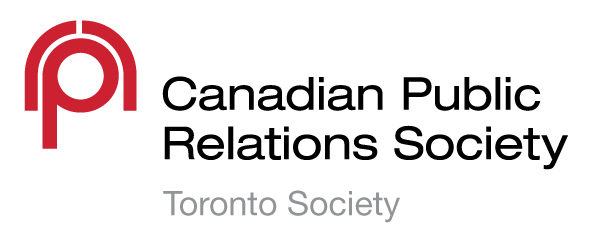The PRSA discussion around the definition of public relations has sparked debate well beyond the American borders. In Canada, the definition is unique in its mention of the “public interest,” and it was to this end that a panel of five prominent PR practitioners and academics came together on May 10 to debate the much talked about question: Can public relations truly be in the public interest?
The participants
The debate was moderated by one of the authors of the Canadian definition: Dr. Terry Flynn APR, FCPRS of McMaster University. Industry practitioners included Andrew Berthoff, APR, Senior VP at Environics Communications; and Diane Bégin, APR, Senior Consultant at Thornley Fallis. Among the academics present were Barry Waite, Professor and Program Coordinator, Corporate Communications & Public Relations at The Centre for Creative Communications, Centennial College; and Roger Clowater, Public Relations Professor at Seneca College.
Reclaiming PR
According to Diane Bégin, the definition of public relations needs to be reclaimed. As suggested by Barry Waite, people have been given a negative perception of PR because of political and celebrity scandals, perpetuating a “spin mentality,” and the stereotype that public relations involves just crisis communications or media relations. To change this requires extensive education not only for practitioners within the field but also the public so they can call out unethical practice through the adequate channels. The ecology of education in Toronto needs to develop as it has in other parts of Canada to create more awareness about what the PR industry really encompasses.
PR as a corporate tool
Dr. Terry Flynn posed the question: Is serving in the public interest an ethical obligation (for an organization) or is it because it makes good business sense? According to Roger Clowater, an organization that maintains transparency and an open dialogue would reduce the chances of a crisis arising, and therefore make good business sense. A responsible PR professional will always advise executive management to be socially responsible and transparent, especially about issues that are in the public interest. Andrew Berthoff quoted Mark Twain saying “When in doubt tell the truth.”
Effective public relations start with good employee relations
When all employees are on board with the organization’s goals and standards, they are more likely to provide customers with a level of service in line with the organization’s mission statement. It is the role of the communicator to organize how a message is to be communicated, and cite mutual interests between an organization and its various stakeholders – all while maintaining transparency and an open dialogue.
Social media as a double-edged sword
With the rise of social media it has become easier than ever for the PR professional to establish an ongoing dialogue and keep management informed about issues that are of interest to the public and the organization itself. However, with the emergence of two-way communications, it has become challenging for an organization to control its message. If a good PR strategy is in place, the feedback from various platforms can be used by the organization to better serve its stakeholders and customers.
Conclusion: Licensing is key
The panel agreed that the role of public relations professionals as a collective is to maintain an ethical sensitivity in all their dealings, and strive to implement a code of ethics in order to best serve the public interest. Dr. Flynn quoted Dr. Edward Bernays, who is also known as the father of public relations saying: “the only way this profession is going to serve the public interest is if it is a licensed profession.” Andrew Berthoff further suggested that “accreditation and licensing need to go hand in hand.” According to Diane Bégin the role of PR professionals is, “…to set the bar high and to become the role models.” Licensing the profession would help create more awareness about and adherence to ethics and standards in the public relations industry.
Stay tuned!
The debate has set the ball rolling for further discussions about Public Relations education, ethics and standards. Stay tuned for upcoming events from the CPRS Marketing, Communications and Education Committee!
Twitter: @CPRSToronto #EDtalks
Sana Ansari is a member of the CPRS Toronto Marketing, Communications and Education Committee and an Intern at Smitten Creative Boutique.

